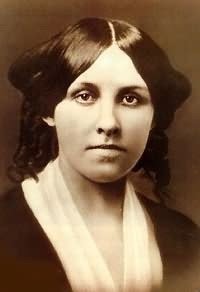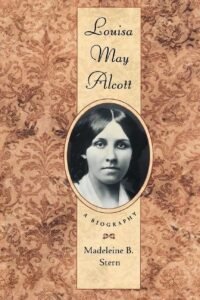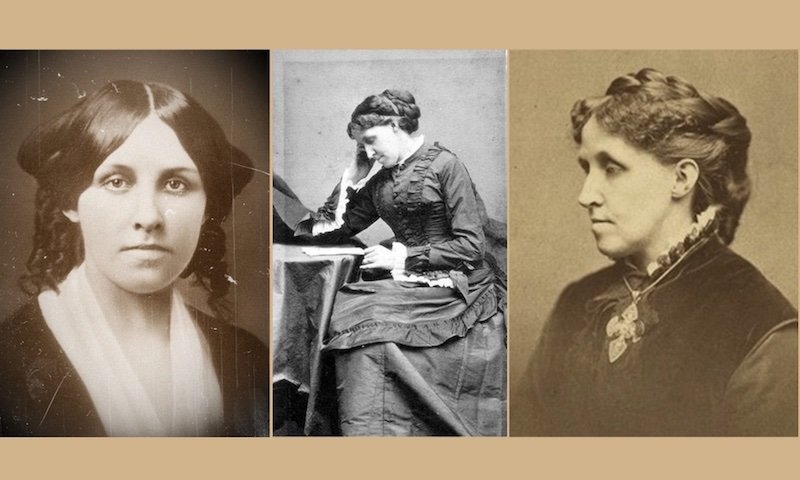Louisa May Alcott Biography: The Storyteller Who Redefined American Literature.
Dive into Louisa May Alcott’s biography, exploring her net worth, age, early life, family, and iconic books like Little Women. Discover her lasting impact in 2025.
Introduction: The Enduring Voice of Louisa May Alcott
What drives a woman to pen stories that captivate generations? For Louisa May Alcott, it was a fierce determination to rise above hardship and give voice to the human spirit.
Louisa May Alcott (November 29, 1832 – March 6, 1888) was an American novelist, short story writer, and poet, best known for her timeless classic Little Women. Born into poverty and shaped by a progressive family, Alcott’s life was a testament to resilience, creativity, and social reform. At the time of her death at age 55, she left a literary legacy that continues to inspire.
This Louisa May Alcott biography explores her net worth, age, early life, family, and books, offering fresh insights into a woman whose work resonates in 2025.
Why This Biography Matters
- Uncover Alcott’s struggles and triumphs behind her literary success.
- Understand her role in shaping feminist and family narratives.
- Connect with her influence on modern literature and media.
Quick Fact: Alcott wrote under the pseudonym A.M. Barnard for sensational stories to support her family.
The Turning Point: Publishing Little Women in 1868
In 1868, at age 35, Louisa May Alcott published the first volume of Little Women, a semi-autobiographical novel about the March sisters. Written at the urging of her publisher, Thomas Niles, the book drew from her own family experiences in Concord, Massachusetts. Its immediate success, selling thousands of copies, transformed Alcott from a struggling writer to a literary star. As her friend Ralph Waldo Emerson noted, “Louisa’s book speaks to the heart of America.” This moment marked her ascent as a defining voice in American literature.
Key Insights from This Moment
- Impact: Elevated Alcott to financial stability and fame.
- Character: Reflected her ability to blend personal truth with universal themes.
- Legacy: Established a template for family and feminist storytelling.
“Louisa’s book speaks to the heart of America.” —Ralph Waldo Emerson

Beyond the Spotlight: Unexplored Dimensions of Louisa May Alcott
Alcott’s legacy extends beyond Little Women, revealing a life of activism, sacrifice, and literary versatility.
The Abolitionist and Suffragist
Alcott was a passionate advocate for abolition and women’s rights, influenced by her parents’ activism. She served as a Civil War nurse in 1862, documenting her experiences in Hospital Sketches, and was among the first women to vote in Concord in 1879.
The Secret Thriller Writer
Under the pseudonym A.M. Barnard, Alcott wrote gothic thrillers like Behind a Mask, published in pulp magazines. These sensational stories, rediscovered in the 20th century, showcased her range and provided crucial income for her family.
The Devoted Daughter
Alcott remained unmarried, dedicating her life to supporting her parents and sisters. She adopted her niece, Lulu, after her sister May’s death, raising her with the same nurturing spirit depicted in Little Women.
The Health Advocate
Plagued by health issues, likely from mercury poisoning during her nursing service, Alcott explored alternative medicine and wrote about wellness, reflecting her resilience despite chronic pain.
| Hidden Facet | Details | Source |
|---|---|---|
| Abolitionist | Advocated for abolition, women’s suffrage | Historical records |
| Thriller Writer | Wrote gothic stories as A.M. Barnard | Literary archives |
| Devoted Daughter | Supported family, raised niece Lulu | Biographies |
| Health Advocate | Explored alternative medicine | Personal letters |
Her World: The Forces That Shaped Louisa May Alcott
Born in Germantown, Pennsylvania, Alcott grew up in Concord, Massachusetts, amidst the Transcendentalist movement. Her father, Amos Bronson Alcott, a philosopher and educator, and her mother, Abigail May, a social worker, instilled progressive ideals. Neighbors like Emerson and Henry David Thoreau mentored her, fostering her intellectual growth. The family’s poverty drove her to write prolifically from a young age.
Shaping Forces
- Mentors: Ralph Waldo Emerson, Henry David Thoreau.
- Peers: Her sisters, Anna, Elizabeth, and May.
- Cultural Context: 19th-century abolitionism and Transcendentalism.
Pullquote: “I want to do something splendid… I think I shall write books.” —Louisa May Alcott

Visualizing Louisa May Alcott: A Timeline Snapshot
A concise timeline traces Alcott’s key milestones, enhancing accessibility.
| Year | Milestone | Impact |
|---|---|---|
| 1862 | Served as Civil War nurse | Inspired Hospital Sketches |
| 1868 | Published Little Women | Achieved literary fame |
| 1879 | Voted in Concord election | Advanced women’s suffrage |
| 1888 | Passed away at age 55 | Left enduring legacy |
Accessibility Note: A timeline outlining Louisa May Alcott’s journey, from her nursing service to her literary triumphs.
Legacy in 2025: Louisa May Alcott’s Modern Resonance
In 2025, Alcott’s Little Women remains a cultural touchstone, adapted into films, TV series, and stage productions, including Greta Gerwig’s 2019 Oscar-nominated film. Her themes of independence, family, and resilience inspire feminist literature and media. Her advocacy for social justice echoes in contemporary movements, cementing her as a timeless icon.
Impact Metrics
| Metric | Value | Source |
|---|---|---|
| Books Published | 30+ | Literary records |
| Little Women Copies Sold | Millions | Publishers’ data |
| Film Adaptations | 7+ | IMDb, 2025 |
Interactive Element: Poll: Which March sister from Little Women resonates with you most? (e.g., Jo, Meg, Beth, Amy)
Alcott’s Literary Process
Alcott’s writing was a disciplined yet passionate endeavor, often conducted in bursts of intense creativity. She wrote Little Women in six weeks, working 14-hour days at her desk in Orchard House. Her journals reveal a process of drawing from personal experiences, blending them with idealized characters to appeal to readers. She revised meticulously, balancing commercial demands with artistic integrity, as seen in her negotiations with publisher Thomas Niles to retain control over Little Women’s sequels.
Key Aspects of Her Process
- Discipline: Wrote daily, often under financial pressure.
- Inspiration: Drew from family life and social issues.
- Revision: Polished drafts to align with her vision.
Pullquote: “I write best when the story flows from my heart.” —Louisa May Alcott
Her Impact on Education
Alcott’s father, Bronson, founded experimental schools, and Louisa absorbed his belief in progressive education. She taught briefly at the Temple School and later wove educational themes into her novels, portraying learning as a path to empowerment in Little Men and Jo’s Boys. Her advocacy for coeducation and access to learning for girls influenced 19th-century reforms, and her books remain part of school curricula in 2025, teaching values of self-reliance and empathy.
Educational Contributions
- Teaching: Worked as a teacher and governess in her youth.
- Novels: Promoted education through fictional schools.
- Advocacy: Supported equal learning opportunities.
Pullquote: “Education is the key to a woman’s freedom.” —Louisa May Alcott
The Transcendentalist Influence
Living in Concord, Alcott was immersed in Transcendentalism, a philosophical movement emphasizing individualism and nature. Mentors like Emerson and Thoreau encouraged her to trust her intuition and challenge societal norms, shaping her feminist and abolitionist views. Her writings reflect Transcendentalist ideals, such as self-reliance in Jo March’s character and reverence for family as a moral anchor, influencing her storytelling’s depth and universality.
Transcendentalist Elements
- Mentorship: Guided by Emerson and Thoreau.
- Themes: Emphasized individualism and morality.
- Community: Lived in utopian Fruitlands experiment.
“Trust your soul, and you’ll find your path.” —Louisa May Alcott
Voices of Louisa May Alcott: Quotes and Perspectives
These quotes capture Alcott’s spirit and influence.
Quote 1
“I am not afraid of storms, for I am learning how to sail my ship.” —Louisa May Alcott
Context: From Little Women, reflecting Jo March’s (and Alcott’s) resilience.
Takeaway: Inspires 2025 readers to face challenges boldly.
Quote 2
“Her words gave women a voice when few had one.” —Literary critic, 1888
Context: Written after Alcott’s death, praising her impact.
Takeaway: Highlights her feminist legacy.
Quote 3
“I’d rather be a free spinster and paddle my own canoe.” —Louisa May Alcott
Context: From her journals, expressing independence.
Takeaway: Resonates with 2025’s empowerment movements.
FAQs About Louisa May Alcott
These questions address reader curiosities and optimize for long-tail keywords.
1. What Was Louisa May Alcott’s Net Worth?
At her death in 1888, Alcott’s net worth was estimated at $20,000–$50,000 (roughly $500,000–$1.5 million in 2025 dollars), earned through book sales and royalties, primarily from Little Women.
2. How Old Was Louisa May Alcott?
Born November 29, 1832, Alcott was 55 when she died on March 6, 1888.
3. What Was Louisa May Alcott’s Early Life Like?
Raised in poverty in Concord, Massachusetts, Alcott was educated by her father and Transcendentalist mentors. She began writing as a teenager to support her family.
4. Who Was Louisa May Alcott’s Family?
Alcott’s parents were Amos Bronson and Abigail May Alcott; her sisters were Anna, Elizabeth, and May. She never married but adopted her niece, Lulu.
5. What Are Louisa May Alcott’s Most Famous Books?
Her notable works include Little Women (1868–1869), Little Men (1871), Jo’s Boys (1886), and Hospital Sketches (1863).
6. Does Louisa May Alcott Have a Wikipedia Page?
Yes, Louisa May Alcott has a detailed Wikipedia page chronicling her life, works, and legacy, widely referenced by scholars.
Conclusion: The Timeless Legacy of Louisa May Alcott
Louisa May Alcott’s journey—from a struggling writer to a literary pioneer—embodies courage and creativity. Her stories, rooted in family and independence, continue to inspire readers and creators in 2025, proving the enduring power of her words.

